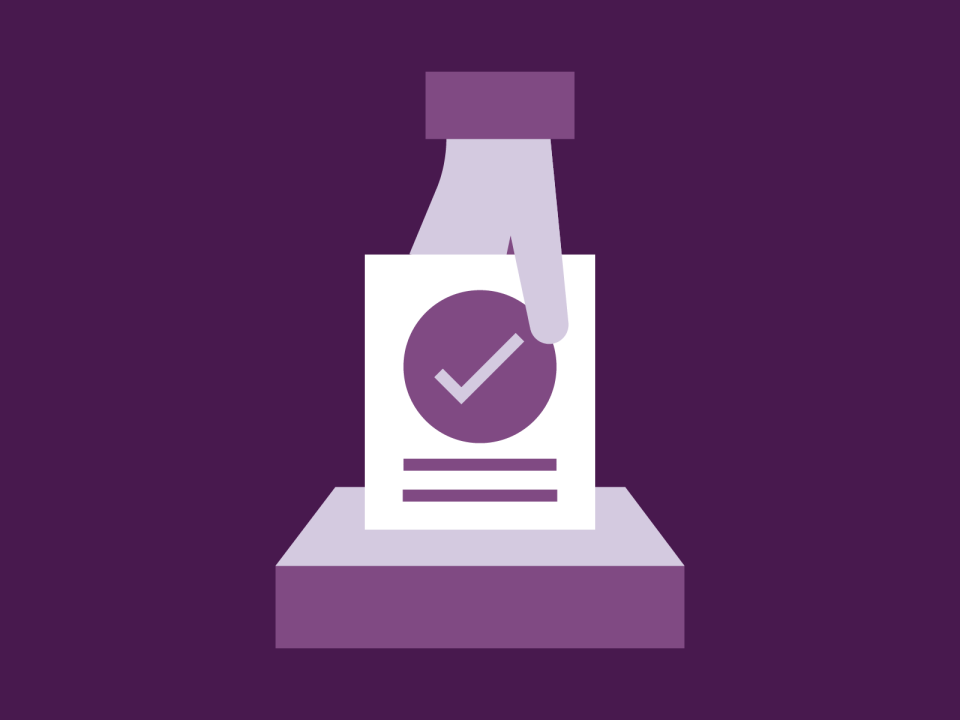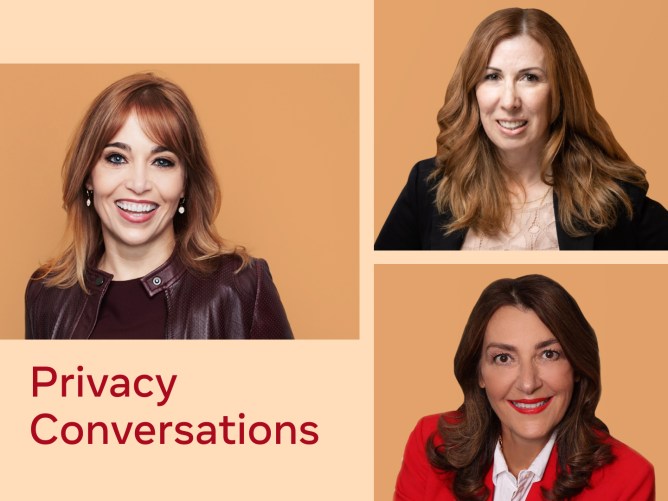
In 2024, a number of countries and regions across the world are taking to the polls to elect their leaders. At Meta, we have been preparing for this for a long time – including for the UK General Election, which is taking place on the 4th July. In advance of this, last year, we activated a dedicated team to develop a tailored approach to help preserve the integrity of these elections on our platforms.
While each election is unique, this work draws on key lessons we have learned from more than 200 elections around the world since 2016, as well as the regulatory framework set out under the UK’s Online Safety Act. These lessons help us focus our teams, technologies, and investments so they will have the greatest impact.
Since 2016, we’ve invested more than $20 billion into safety and security and quadrupled the size of our global team working in this area to around 40,000 people. This includes 15,000 content reviewers who review content across Facebook, Instagram and Threads.
Over the last eight years, we’ve rolled out industry-leading transparency tools for ads about social issues, elections or politics, developed comprehensive policies to prevent election interference and voter fraud, and built the largest third party fact-checking programme of any social media platform to help combat the spread of misinformation. More recently, we have committed to taking a responsible approach to new technologies like Generative AI. We’ll be drawing on all of these resources in the run up to the election, and are launching a new ad campaign on Facebook and Instagram to raise awareness of these tools and features.
We’ll also activate a UK-specific Elections Operations Centre, bringing together experts from across the company from our intelligence, data science, engineering, research, operations, content policy and legal teams to identify potential threats and put specific mitigations in place across our apps and technologies in real time.
Here are four key areas our teams will be focusing on:
Combating misinformation
We remove the most serious kinds of misinformation from Facebook, Instagram and Threads, such as content that could contribute to imminent violence or physical harm, or that attempts to interfere with voting.
For content that doesn’t violate these particular policies, we work with independent fact-checking organisations, all certified by the International Fact Checking Network (IFCN) or the European Fact-Checking Standards Network (EFCSN), who review and rate content. In the UK this includes Full Fact, Reuters, Logically Facts and FactCheckNI. When content is debunked by these fact checkers, we attach warning labels to the content and reduce its distribution in Feed and Explore so people are less likely to see it.
Ahead of the election period, we will make it easier for all our fact-checking partners to find and rate content related to the election because we recognise that speed is especially important in these moments. We have increased their capacity to rate and review content and we’ll use keyword detection to group related content in one place, making it easy for fact-checkers to find. Our fact checking partners have been onboarded to our new research tool, Meta Content Library, that has a powerful search capability to support them in their work.
We don’t allow ads that contain debunked content. We also don’t allow ads targeting the UK that discourage people from voting in the election; call into question the legitimacy of the election and its outcome; or contain premature claims of election victory. Our ads review process has several layers of analysis and detection, both before and after an ad goes live, which you can read more about here.
Tackling influence operations
We define influence operations as coordinated efforts to manipulate or corrupt public debate for a strategic goal – what some may refer to as disinformation – and which may or may not include misinformation as a tactic. They can vary from covert campaigns that rely on fake identities (what we call coordinated inauthentic behaviour), to overt efforts by state-controlled media entities.
To counter covert influence operations, we’ve built specialised global teams to stop coordinated inauthentic behaviour and have investigated and taken down over 200 of these adversarial networks since 2017, something we publicly share as part of our Quarterly Threat Reports. This is a highly adversarial space where deceptive campaigns we take down continue to try to come back and evade detection by us and other platforms, which is why we continuously take action as we find further violating activity.
For more overt efforts, we label state-controlled media on Facebook, Instagram and Threads so that people know when content is from a publication that may be under the editorial control of a government. We also applied new and stronger enforcement to Russian state-controlled media, including blocking them in the EU and the UK and globally demoting their posts. Recent research by Graphika shows this led to posting volumes on their pages going down 55% and engagement levels going down 94% compared to pre-war levels, while “more than half of all Russian state media assets had stopped posting altogether.”
Countering the risks related to the abuse of GenAI technologies
Our Community Standards, and Ad Standards apply to all content, including content generated by AI, and we will take action against this type of content when it violates these policies. AI-generated content is also eligible to be reviewed and rated by our independent fact-checking partners. One of the rating options is Altered, which includes, “Faked, manipulated or transformed audio, video, or photos.” When it is rated as such, we label it and down-rank it in feed, so fewer people see it. We also don’t allow an ad to run if it contains content that has already been debunked.
For content that doesn’t violate our policies, we still believe it’s important for people to know when photorealistic content they’re seeing has been created using AI. We label photorealistic images created using Meta AI, and label organic AI generated images that users post to Facebook, Instagram and Threads from Google, OpenAI, Microsoft, Adobe, Midjourney, and Shutterstock as they implement their plans.
We have also added a feature for people to disclose when they share AI-generated images, video or audio so we can add a label to it. If we determine that digitally created or altered image, video or audio content creates a particularly high risk of materially deceiving the public on a matter of importance, we may add a more prominent label, so people have more information and context.
Advertisers who run ads related to social issues, elections or politics with Meta also have to disclose if they use a photorealistic image or video, or realistic sounding audio, that has been created or altered digitally, including with AI, in certain cases. That is in addition to our industry leading ad transparency, which includes a verification process to prove an advertiser is who they say they are and that they live in the UK; a “Paid for by” disclaimer to show who’s behind each ad; and our Ad Library, where everyone can see what ads are running, see information about targeting and find out how much was spent on them.
Since AI-generated content appears across the internet, we’ve also been working with other companies in our industry on common standards and guidelines. We’re a member of the Partnership on AI, for example, and we recently signed on to the tech accord designed to combat the spread of deceptive AI content in the 2024 elections. This work is bigger than any one company & will require a huge effort across industry, government, & civil society.
Candidate Safety
We want our platforms to give Members of Parliament and candidates the power to engage their constituents on the issues that matter to them in a safe and positive way. Whilst our rules distinguish between public figures and private individuals to allow for open discussion, we employ a range of measures to protect public figures from malicious posts and behaviour.
Our Community Standards outline what is and isn’t allowed on Facebook, Instagram and Threads. Through feedback from our community and experts around the world, we have created policies specifically to protect public figures.
- Hate Speech: we remove attacks on someone based on their race, religion, nationality, sex, gender identity, sexual orientation or other defined protected characteristics.
- Violence & Incitement: we remove any language that incites or facilitates serious violence, disable accounts, and work with law enforcement when we believe that there is a genuine risk of physical harm or direct threats to public safety.
- Bullying & Harassment: we protect MPs and candidates from repeated unwanted contact and sexual harassment, and we remove more abusive posts if a public figure is directly tagged in a post or comment or where they report it directly.
We also work closely with the Political Parties to encourage candidates to report anything that raises cause for concern and assist with best practice around social media security and monitor open social media pages for abuse and threats. We’re holding a series of training sessions for candidates on safety, outlining the help available to address harassment on our platforms. All of this information will also be available in our UK Election Center for Candidates.
For more information about how Meta approaches elections, visit our Preparing for Elections page and for WhatsApp, visit our elections website.
The post How Meta Is Preparing for the 2024 UK General Election appeared first on Meta.















 English (US) ·
English (US) ·